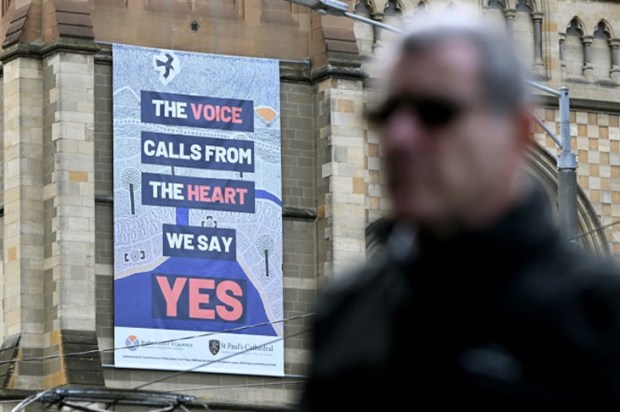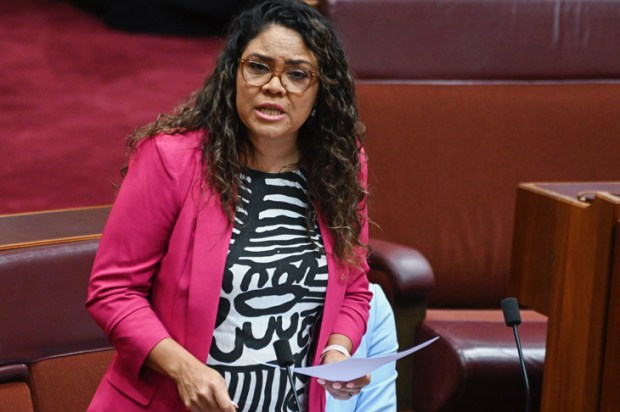The past two years have seen the trust many Australians’ have in their institutions brought to an all-time low through a period of relentless incursions into their lives and liberty. In many instances, these intrusions were cruel and unnecessary, and failed to address the concerns of Australians who valued the fast-evaporating tenet of freedom of choice.
In March 2020, ‘two weeks to slow the spread’ quickly turned into two years of Covid paralysis in which we were told to accept QR codes, density limits, border restrictions and a loss of medical autonomy as the ‘new normal’.
After initially being sold as ‘voluntary’ the Covid vaccines quickly became a prerequisite for work in many professions across the country, a move that cost livelihoods, devastated families, and undermined trust in governments and the medical establishment.
Australians became cautious of a failure to safeguard us from these draconian measures. We were told to comply and Covid would be over quickly, but the goal-posts continued to shift.
Now with the dust settling, Australians will soon be told to trust their institutions once again with the introduction of the so-called ‘Trusted Digital Identity Bill’.
The concept of a ‘digital identity’ is more complex than it would first appear, but essentially describes a centralised, government-managed identity verification system which draws from a range of information collected by government services, social media, and corporate economic data.
In short, what is being proposed is a Bill which has the potential to be misused in ways that could fundamentally change the structure of Australian society by giving government extraordinary access to private and personal information.
The Bill seeks to consolidate all the information that a government could possibly attain about private citizens into one database. It strives to place government at the centre of all our online transactions providing an opportunity to collect vast amounts of data about people.
As initially drafted, the Bill contains assurances that this new ‘digital identity system’ will be voluntary and safe but, after what Australians have been through over the past two years, one can understand a healthy dose of cynicism about such overtures. Why would anyone trust any institution with a complete profile of their being including such information as racial or ethnic origin, political opinions, religious beliefs or affiliations and sexual orientation (to name but a few).
In truth what is being proposed may well represent the foundation of a virtual social credit system with government collecting unprecedented amounts of personal information in exchange for access to online services.
There are proposed carve-outs for essential service providers (defined as emergency services, carriage services, welfare services and the supply of electricity, gas, and water) from requiring the use of this system. However, what is to prevent the government changing its policy due to a perceived ‘emergency’, in years to come?
The Covid experience shows quite clearly how an ‘emergency’ can be weaponised against fairness and due process. It is not difficult to envisage how such a system could be abused or gradually morph into something even more dangerous if this digital identity profile becomes required for every important online transaction.
It would be a simple task to keep tabs on groups of people or even deny services to them based on, for example, vaccination status or political beliefs. The most authoritarian regimes in history could not have dreamed of having access to such vast amounts of information about their citizens.
The rationale for this new framework is proposed on the grounds of convenience and safety, with the Bill stating its intention as ‘to provide individuals with a simple and convenient method for verifying their identity in online transactions with government and businesses’. It sounds a lot like code for liberty being sacrificed at the altar of convenience. It does not however seem convenient, necessary, or helpful for Australian citizens who desire less government intrusion in their lives.
Why, after everything that Australians have been through over the past two years, should they believe that this data will not be used against them, or that it will remain voluntary?
Equally, having all of one’s private data in one location makes the system a prime target for hackers, whether they be foreign threats or cyber-criminals. If this system were compromised (which it almost certainly will be) the outcomes will be disastrous.
We know that the concept of a centralised framework for digital identity is a significant hobby-horse of the bureaucratic elites of the World Economic Forum yet what is unclear is whether anyone ever asked their local MP for a system allowing government to keep tabs on them? With everything Australians have been through over the past two years, it’s little wonder there are growing concerns that this proposal will simply pump the tyres of the ever-expanding bureaucratic, and corporate classes. The Australian Parliament’s efforts must always be geared towards serving the interests of this nation, not those of the overseas elites and their hedge fund-managing mates.
The term ‘Orwellian’ speaks to a state of existence in which our actions are constantly monitored, where those who contradict the prevailing orthodoxy can be penalised, and in which personal liberty and independent thought are severely restricted. This Bill has the real potential to take Australia further along the authoritarian path we have so effortlessly ventured down in recent times.
Your digital future and that of your children and grandchildren are about to be played out in Parliament. It’s time for you to have your say in relation to whether you want to be watched in every aspect of your digital life. I most certainly do not.
Got something to add? Join the discussion and comment below.
Get 10 issues for just $10
Subscribe to The Spectator Australia today for the next 10 magazine issues, plus full online access, for just $10.
You might disagree with half of it, but you’ll enjoy reading all of it. Try your first month for free, then just $2 a week for the remainder of your first year.














Comments
Don't miss out
Join the conversation with other Spectator Australia readers. Subscribe to leave a comment.
SUBSCRIBEAlready a subscriber? Log in